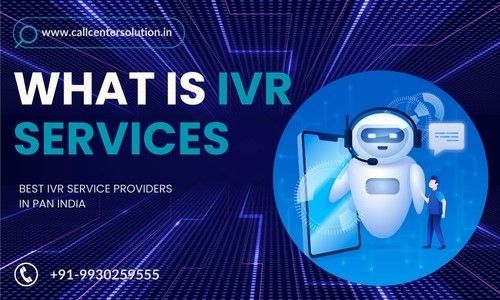


IVR services are not just about automation of voice. They have a more critical role in delivering top-notch customer service.
Introduction
Interactive Voice Response (IVR) services represent the bedrock of contemporary customer interaction. You have probably used such services to call your bank, order a pizza, or check on flight schedules. IVR services make customer interactions smoother by processing responses and routing calls without much intervention from human agents.
What Is IVR?
Interactive Voice Response is a technology that enables the caller to interact with a computerized system by voice commands or keypad inputs. It doesn’t require a live operator for processing simple transactions.
Key Features of IVR Systems
Automated call handling, Voice recognition and text-to-speech capabilities, Multi-language support, and Integration with other business systems.
How IVR Services Work
IVR systems work on a combination of hardware and software. Here’s a step-by-step breakdown:
Call Origination: A customer dials into the business.
System Trigger: The IVR system answers and offers menu options.
Input Interpretation: The customer interacts through voice or keypad inputs.
Response Output: The system processes the input and responds appropriately or executes an action.
Call Transfer: In case the call requires transfer, the system routes the call to a live agent or another department.
How to Improve IVR Systems
Simplify Menus: Fewer steps to get to a solution.
Use Clear Prompts: No jargon and clear instructions.
Use AI: Allow the system to adapt to dynamic conversations.
Advantages of IVR Services
Customer Satisfaction: It saves time and delivers quicker responses.
Cost Effectiveness: Reduces the human operator’s need.
Availability 24/7: The service is available all day, every day, even beyond business hours.
General Uses of IVR Systems
Customer Support IVR allows businesses to handle a high volume of customer inquiries efficiently by directing calls to appropriate departments or providing self-service options.
Automated Surveys and Feedback Collection IVR systems can gather customer feedback after a transaction or service interaction to assess satisfaction levels.
Appointment Scheduling and Reminders Customers can book, modify, or cancel appointments using an IVR, which also sends automated reminders to reduce no-shows.
Payment Processing Secure IVR systems facilitate bill payments and financial transactions without the need for human intervention.
Order Placement and Tracking Customers can place orders or track their shipment status through an IVR, reducing dependency on manual support.
Emergency Assistance IVR provides 24/7 support for emergency services, such as reporting outages, theft, or urgent medical needs.
IVR Services Common Uses
Customer Service: FAQ and complaints.
Surveys and Feedback: Collecting customer opinions.
Payment Processing: Facilitates secure transactions
IVR System Components
Voice Recognition Technology: Recognizes and interprets spoken commands.
Text-to-Speech Functionality: Translates text data into words.
Call Routing Mechanisms: Forwards calls to the intended endpoint.
